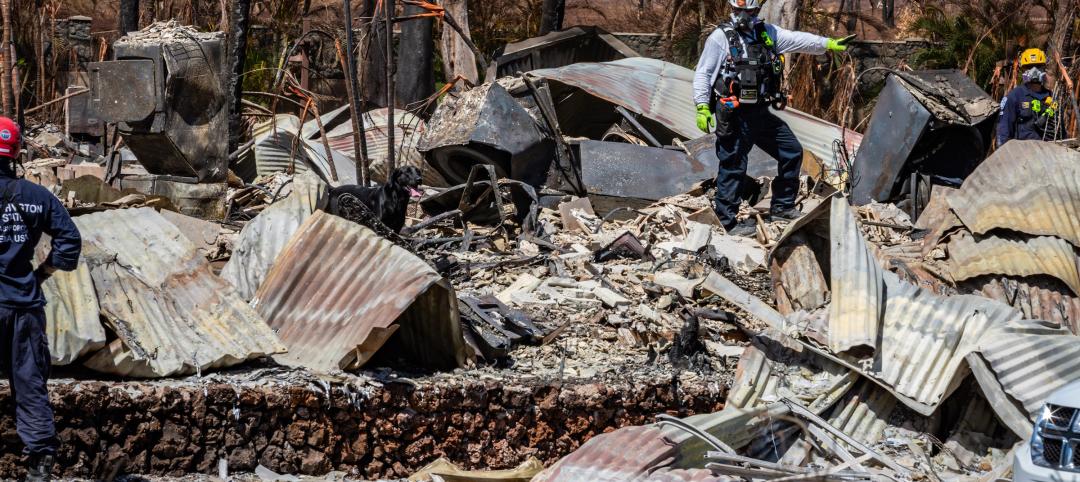The construction industry and real estate development could be hampered by the U.S. Congress’s failure to renew the Terrorism Risk Insurance Act (TRIA).
Insurance industry experts say without federal terrorism reinsurance in place for 2015, resulting canceled property/casualty insurance coverage and market chaos could be disruptive to the economy.
"A major terrorist attack occurring without a TRIA law on the books will be far more disruptive to the U.S. economy than one where TRIA is in place," saidInsurance Information Institute President Robert Hartwig. “Terrorism insurance policies are going to lapse in 2015, and insurers will be under no obligation to renew them, adversely impacting the construction, energy, and real estate industries, among others.”
Federal terrorism reinsurance had helped stabilize the market in the wake of the Sept. 11, 2011 terrorist attacks, and it had been renewed several times since. There was widespread bipartisan support for TRIA renewal, but retiring U.S. Sen. Tom Coburn, an Oklahoma Republican, held up passage. Coburn objected to a measure included in the bill that would have set up the National Association of Registered Agents and Brokers, an entity that would have potentially bypassed state regulators.
One positive sign: A.M. Best said it “has determined that no rating actions on insurers previously identified as over-reliant upon [TRIA] are necessary at this time.” The rating agency said it reviewed action plans from insurance carriers addressing what they would do if TRIA was not renewed and concluded that “sufficient mitigation initiatives were developed to avoid a material impact on a rating unit’s financial strength.”
(http://www.insurancejournal.com/news/national/2014/12/18/350561.htm)
Related Stories
Regulations | Oct 4, 2023
New York adopts emissions limits on concrete
New York State recently adopted emissions limits on concrete used for state-funded public building and transportation projects. It is the first state initiative in the U.S. to enact concrete emissions limits on projects undertaken by all agencies, according to a press release from the governor’s office.
Architects | Oct 4, 2023
Architects and contractors underestimate cyberattack risk
Design and construction industry firms underestimate their vulnerability to cyberattacks, according to a new report, Data Resilience in Design and Construction: How Digital Discipline Builds Stronger Firms by Dodge Construction Network and content security and management company Egnyte.
Standards | Sep 25, 2023
Updated specification for PVC exterior profiles on windows, doors, and skylights
The Fenestration and Glazing Industry Alliance (FGIA) updated a specification establishing minimum requirements for Polyvinyl Chloride (PVC) exterior profiles that are used in windows, doors, and skylights.
Resiliency | Sep 25, 2023
National Institute of Building Sciences, Fannie Mae release roadmap for resilience
The National Institute of Building Sciences and Fannie Mae have released the Resilience Incentivization Roadmap 2.0. The document is intended to guide mitigation investment to prepare for and respond to natural disasters.
Codes and Standards | Sep 25, 2023
Lendlease launches new protocol for Scope 3 carbon reduction
Lendlease unveiled a new protocol to monitor, measure, and disclose Scope 3 carbon emissions and called on built environment industry leaders to tackle this challenge.
Codes and Standards | Sep 25, 2023
Modern codes, construction techniques saved structures in Maui wildfire
Modern building codes and construction techniques were effective in saving buildings from the devastating wildfire in Maui on August 9th, according to a recent report, IBHS Early Insights Lahaina Fire—2023, from the Insurance Institute for Business and Home Safety’s research division.
Mass Timber | Sep 19, 2023
Five Things Construction Specialties Learned from Shaking a 10-Story Building
Construction Specialties (CS) is the only manufacturer in the market that can claim its modular stair system can withstand 100 earthquakes. Thanks to extensive practical testing conducted this spring at the University of California San Diego (UCSD) on the tallest building ever to be seismically tested, CS has identified five significant insights that will impact all future research and development in stair solutions.
Data Centers | Sep 15, 2023
Power constraints are restricting data center market growth
There is record global demand for new data centers, but availability of power is hampering market growth. That’s one of the key findings from a new CBRE report: Global Data Center Trends 2023.
Engineers | Sep 15, 2023
NIST investigation of Champlain Towers South collapse indicates no sinkhole
Investigators from the National Institute of Standards and Technology (NIST) say they have found no evidence of underground voids on the site of the Champlain Towers South collapse, according to a new NIST report. The team of investigators have studied the site’s subsurface conditions to determine if sinkholes or excessive settling of the pile foundations might have caused the collapse.
Codes and Standards | Sep 13, 2023
New rule mandates annual parapet inspections for New York City buildings
In November 2021, New York City enacted Local Law 126 of 2021, which is well-known in the building industry for establishing new requirements for periodic parking garage inspections. At the same time, the legislation added a section to the NYC Administrative Code mandating periodic observation of building parapets. To allow owners time to prepare, the City set the start date for the new parapet observations for January 1, 2024.
















